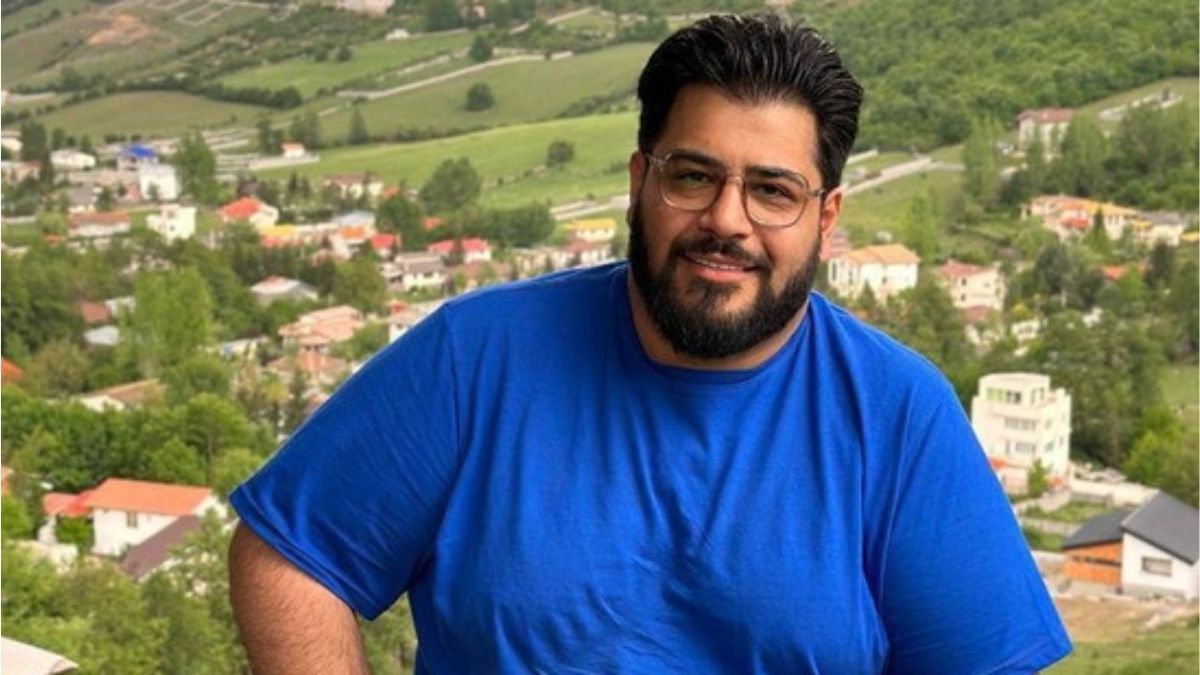Mohsen Langarneshin: Iran executes 'Mossad spy' who allegedly helped assassinate IRGC officer Hassan Sayyad Khodaei
 Mohsen Langarneshin
Mohsen Langarneshin
Iran has executed Mohsen Langarneshin, a 36-year-old former IT consultant, after convicting him of espionage for Israel’s Mossad intelligence agency in connection with the 2022 assassination of a senior Islamic Revolutionary Guard Corps (IRGC) officer in Tehran. The execution, carried out by hanging at Ghezel Hesar prison early on April 30, has sparked outrage among human rights organisations and renewed scrutiny of Iran’s opaque judicial processes.
The gravest charge against Langarneshin was that he had a key role in the assassination of Colonel Hassan Sayyad Khodaei, who was gunned down outside his home in Tehran by two assailants on a motorbike. Iranian investigators accused Langarneshin of purchasing the bike used to follow Khodaei and giving real-time intelligence to the assailants.
According to Iranian state media, Langarneshin had been recruited by Mossad in 2020 and received training in covert operations during meetings with Israeli intelligence officers in Georgia and Nepal. Over the next two years, he reportedly supported several Mossad-linked operations inside Iran, including logistical support for attacks on defence-related infrastructure and the use of secure communication tools such as the “Red Windows” system to liaise with Israeli agents.
Iran’s judiciary described Langarneshin as a “senior spy” who had facilitated terrorism, sabotage and espionage. He was tried in a revolutionary court presided over by Judge Abolghasem Salavati—a figure notorious for issuing death sentences in politically sensitive cases and sanctioned by both the US and the EU for human rights abuses. Langarneshin was convicted of Moharebeh (“enmity against God”) and Efsad-fil-Arz (“corruption on Earth”), charges that carry the death penalty under Iran’s Islamic Penal Code.
However, Langarneshin's family and international rights groups insist he was innocent. They claim his confession was extracted under torture and that the court refused to consider extensive evidence supporting his innocence. His mother made an emotional plea on social media a day before his execution: “Please pray for my child… I do not know if he will see the sunrise tomorrow or not.”
The Norway-based Iran Human Rights (IHR) group called the trial deeply flawed. “Mohsen Langarneshin, who was sentenced to death in an unfair judicial process based on confessions obtained under torture and charged with espionage for Israel, was hanged at dawn today,” said IHR director Mahmood Amiry-Moghaddam. “The Iranian authorities’ execution machine is accelerating every day, taking the lives of more people,” he added, labelling the killing an “extrajudicial execution.”
Iran has long accused Mossad of operating within its borders to undermine national security through assassinations and sabotage—especially against nuclear scientists and defence installations. The 2020 killing of Mohsen Fakhrizadeh, Iran’s top nuclear scientist, was attributed to Mossad by Iranian officials, and Western analysts suggest the Israeli agency has an active presence inside Iran. However, activists warn that in the absence of captured agents, Iranian authorities often pin blame on local scapegoats.
“Israel’s operatives usually escape before Iranian security forces can respond,” an Iran-based human rights researcher told The Guardian. “This leaves innocent civilians vulnerable to show trials and executions.”
Langarneshin’s execution is part of a broader rise in capital punishment in the Islamic Republic. According to Amnesty International, Iran is the world’s second leading executioner, with over 900 capital punishments in 2024. The IHR has records of at least 339 executions so far in 2025, with many of them connected to political crimes. Critics allege that Iran increasingly uses capital punishment as a tool to curb dissent, target opposition and project strength during internal and external crises. Most of these are orchestrated by Revolutionary courts, which are notorious for secretive hearings, inadequate legal representation and quick verdicts often based on coerced confessions.
Geopolitically, Langarneshin’s execution has come at a tense moment for Tehran. The United States, under President Donald Trump, has resumed negotiations with Iran over its nuclear programme, even as both Tel Aviv and Washington threaten coercive action if diplomacy fails. Iranian Foreign Minister Abbas Araghchi said the next round of nuclear talks with the US would take place in Rome on May 3, with parallel meetings planned with European powers.
Meanwhile, Iranian authorities reiterate that Langarneshin’s execution followed due process and was commensurate with the gravity of the crimes committed. The judiciary’s official statement said: “The criminal’s high-level operational training made him a professional in executing missions, but he was ultimately identified and apprehended by Iran’s vigilant security forces.”
However, human rights advocates insist that justice in Iran remains elusive. “As long as confessions obtained under torture are used as evidence in court, and as long as trials are conducted behind closed doors without independent oversight, executions like that of Mohsen Langarneshin will be viewed not as justice, but as state-sanctioned vengeance,” said Amiry-Moghaddam.
Middle East